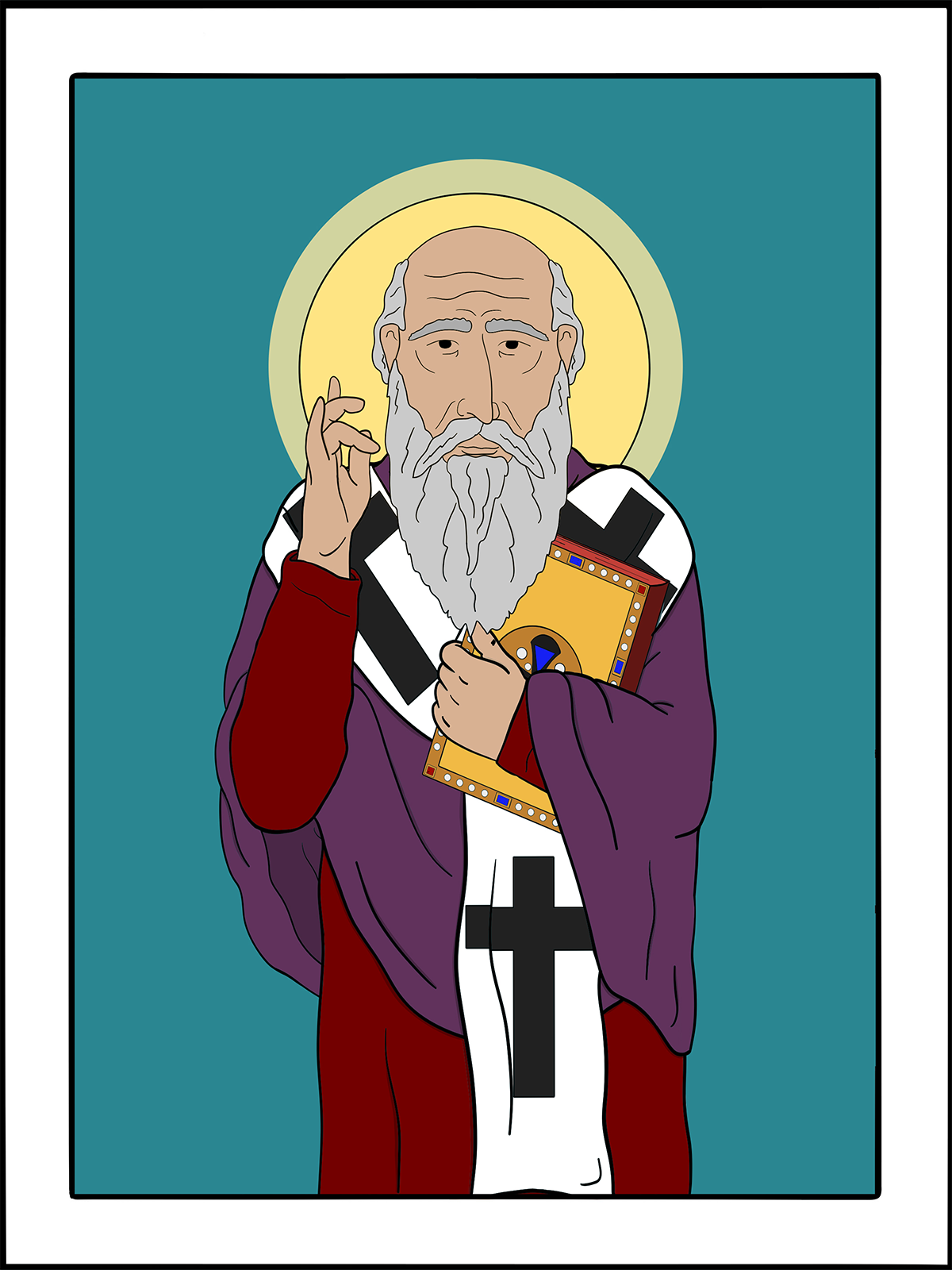
May 2
Athanasius of Alexandria
Bishop and Theologian, 373
art by Rev. Kirsten Kohr of Geneva, Ohio O Lord, who established your servant Athanasius, through wisdom, in your truth: Grant that we, perceiving the humanity and divinity of your Son Jesus Christ, may follow in his footsteps and ascend the way to eternal life, who lives and reigns with you and the Holy Spirit, one God, now and for ever. Amen.
Athanasius was born around 295 in Alexandria and was ordained as a deacon in 319. He quickly attracted attention by his opposition to the presbyter Arius, whose teaching that the Second Person of the Trinity was a creature was gaining widespread acceptance. Alexander, the Bishop of Alexandria, took Athanasius as his secretary and adviser to the first Ecumenical Council, at Nicaea in 325, which dealt with the Arian conflict. Athanasius was successful in winning approval for the phrase in the Nicene Creed which has ever since been recognized as expressing unequivocally the full divinity of the Son: “of one Being with the Father” (homoousios).
When Alexander died in 328, Athanasius became bishop. He fearlessly defended Nicene Christology against emperors, magistrates, bishops, and theologians. Five times he was sent into exile. He often seemed to stand alone for the orthodox faith. “Athanasius contra mundum” (Athanasius against the world) became a byword. Yet, by the time of his last exile, his popularity among the citizens of Alexandria was so great that the emperor had to recall him to avoid insurrection in the city.
Athanasius wrote extensively, including biblical interpretation, theological exposition, sermons, and letters. His treatise, On the Incarnation of the Word of God, is a still widely read theological classic, and his work The Life of Antony became profoundly influential in the spread of the early monastic movement.
In On the Incarnation, he writes, “The Savior of us all, the Word of God, in his great love took to himself a body and moved as Man among men, meeting their senses, so to speak, halfway. He became himself an object for the senses, so that those who were seeking God in sensible things might apprehend the Father through the works which he, the Word of God, did in the body. Human and human-minded as people were, therefore, to whichever side they looked in the sensible world, they found themselves taught the truth.”
Athanasius died in Alexandria in the year 373, after devoting his final years to preaching, writing, and giving spiritual direction.
Excerpted directly from “Lesser Feasts and Fasts 2022,” p. 214-215.

